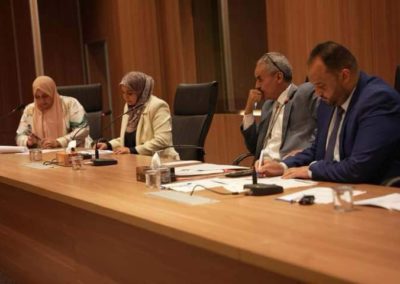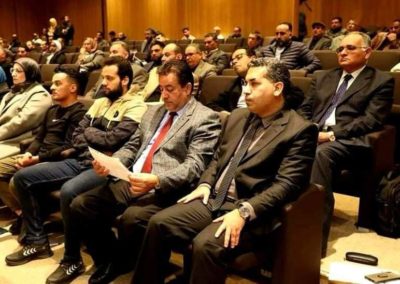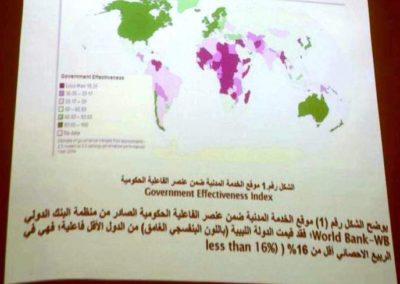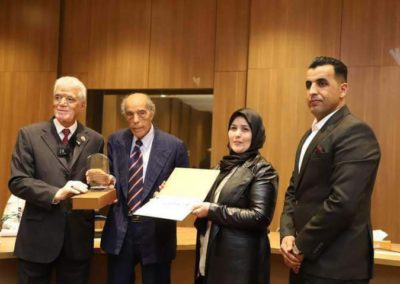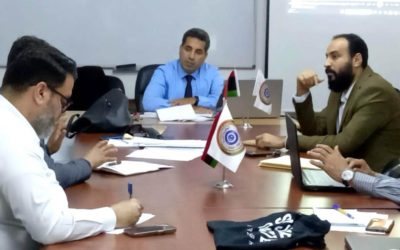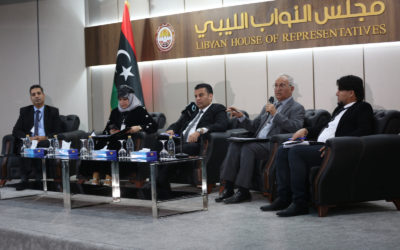The University of Benghazi, represented by Dr. Anas Baiera, Director of the Center for Institutional Development (with a scientific paper), and Dr. Abdul Latif Madi, Dean of the Faculty of Law (presiding over the scientific program), participated in the symposium “Civil Service and Its Role in Enhancing the Quality of Public Employment” organized by the Eastern Region Civil Service Ministry, headed by Mr. Saleh Karakra Al-Farjani and Dr. Hind Ahmed Shihoub Al-Wahidi. The university, through the Center for Public Administration and Institutional Development, presented a paper titled “Management and Organization of the Civil Service Sector in Libya: Past Policies and Their Impact on the Current and Future Institutional Reality.” This paper was presented by the center’s director, Dr. Anas Baiera, and civil service management researcher Haneen Al-Ghweil. The event was attended by several members of the Libyan Parliament, the director of the National Institute of Administration in Benghazi, the administrative and financial affairs director on behalf of the Minister of Civil Service, as well as many academics, interested parties, and postgraduate students from the Department of Public Administration at the Faculty of Economics, University of Benghazi, and the Public Administration Department at the Libyan Academy for Graduate Studies.
The key recommendations of the paper include proposing the organization of a job classification methodology and the immediate initiation of building a public employment information system based on monitoring employment indicators between the public and private sectors to provide a national archive for the sector. Additionally, it recommends returning to the previously studied training system of the Libyan state, which was based on the presence of a “National Higher Committee for Administrative Training.” Finally, it is crucial to link anti-corruption policies in the Libyan state directly to the issue of reforming civil service systems and procedures in ten proposed fundamental dimensions from the presented research, alongside other parallel reforms in education, finance, economy, and other areas of state administration.

